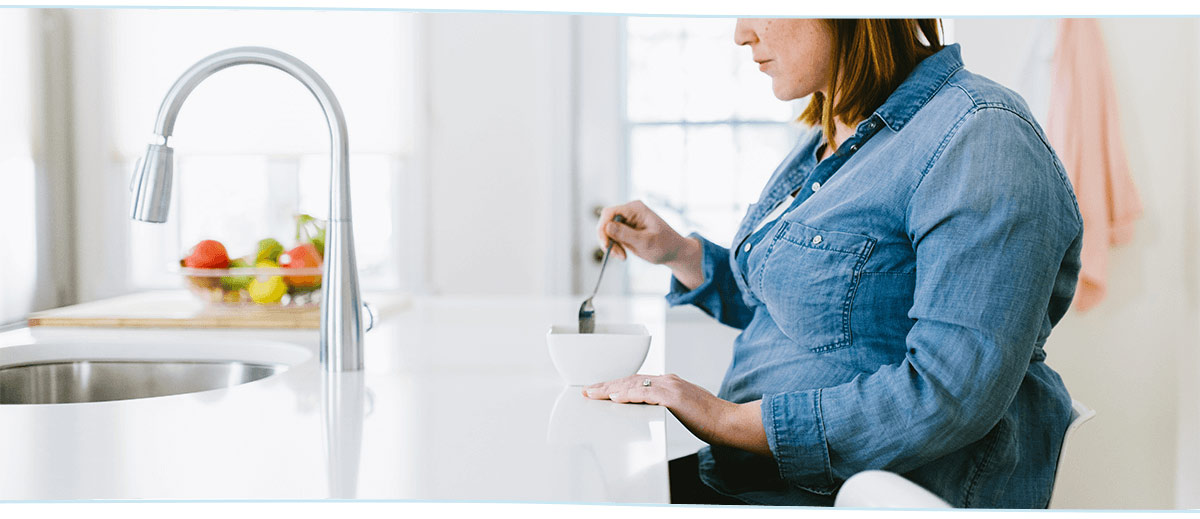Breaking up your daily food intake
into five or six smaller meals can
help with constipation relief.
Constipation during pregnancy
Half of all pregnant women get constipated at some point, and this could be due to hormones, diet, or the pressure of a growing uterus.
What can you do about it?
Here are some tips for easing constipation during pregnancy
Eat high-fibre foods such as whole-grain cereals and breads, brown rice, beans, and fresh fruits and vegetables every day. Adding a couple of tablespoons of unprocessed wheat bran (available at health food stores) to your cereal in the morning and following it with a glass of water can help. Be patient as it may take a few days before you notice a difference.
Don’t forget to drink plenty of water. Try to drink 10 cups (2.5 L) of water or other beverages every day. Your urine should be clear or pale yellow — a sign of proper hydration. You can always try some prune juice. Some people find that drinking a warm beverage right after waking up helps too.
Iron can cause constipation. You may want to check with your health care provider about switching to a supplement with less iron.
Another pregnancy tip: your bowels are most likely to be active after meals, so make time for the bathroom after you eat. Listen to your body. Never put off going to the bathroom when you feel the urge.
Moving might also help to… get things moving. Exercise regularly. Walk, swim, ride a stationary bike, and do yoga. All of these can help ease constipation and leave you feeling more fit and healthy. And if none of the above helps, talk to your doctor about taking an over-the-counter fibre supplement or stool softener. Do not use a laxative without checking with your doctor or nurse first. Laxatives can trigger the onset of labour contractions.
Experiencing pregnancy constipation? Relax, follow the tips above, and you’ll soon be a regular “expert” at managing it.
Can constipation be serious?
Not usually, but occasionally, it can point to another problem. If you have severe constipation that is accompanied by abdominal pain or that alternates with diarrhea, or if you pass mucus or blood, call your doctor or midwife immediately.
Also, straining during a bowel movement or passing a hard stool can lead to or worsen hemorrhoids. Hemorrhoids can be extremely uncomfortable, though they rarely cause serious problems. In most cases, they go away fairly soon after your baby is born. However, if the pain is severe or you have rectal bleeding, you should see your doctor or midwife for an evaluation.
TIP
References:
Public Health Agency of Canada. Healthy Pregnancy – Constipation. 2012.
American Pregnancy Association. Pregnancy and Constipation. 2015.





